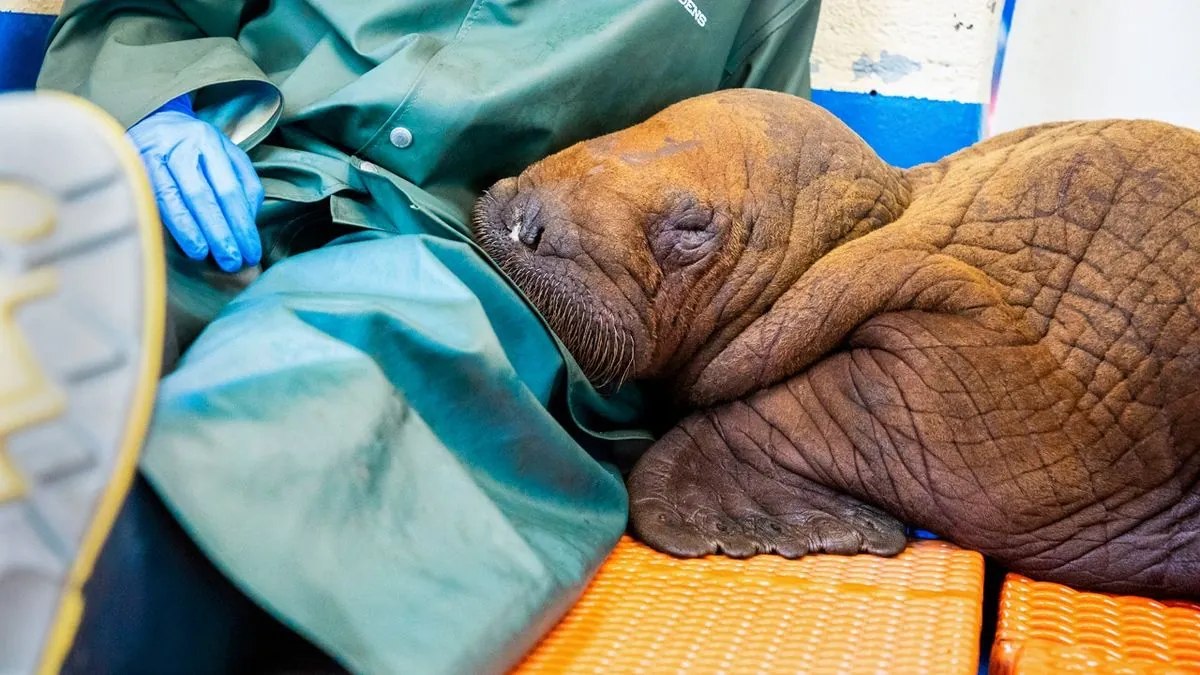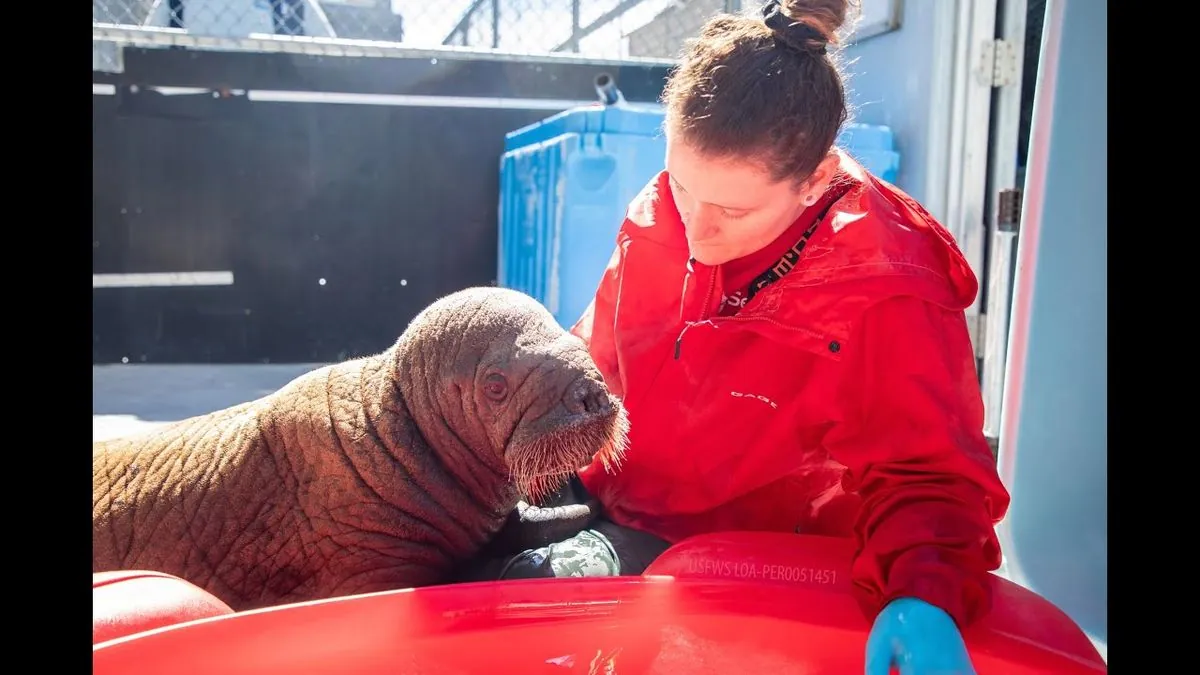Orphaned Walrus Calf Thrives Under Expert Care in Alaska
An orphaned walrus calf, rescued from an Alaskan beach, is making remarkable progress at the Alaska SeaLife Center. Experts are providing round-the-clock care for the young marine mammal, ensuring its survival and growth.

In a heartwarming turn of events, an orphaned Pacific walrus calf is thriving under expert care at the Alaska SeaLife Center. The young marine mammal was discovered by hunters on a beach in Utqiagvik, Alaska's northernmost city, in July 2024.
The 165-pound female calf, estimated to be only one to two weeks old, was found in a precarious state. Carrie Goertz, veterinarian and director of animal health at the center, reported that the calf was dehydrated and malnourished, with visible scrapes across its wrinkled skin. The rescue was crucial, as walrus calves typically remain with their mothers for up to three years in the wild.
This rescue effort brings to mind a similar attempt from July 2023, when another orphaned walrus calf was found on the North Slope tundra. Despite round-the-clock care, including constant cuddling, that calf unfortunately succumbed to complications from malnutrition. The current rescue has renewed hope among the caretakers.

Since her arrival at the center on July 22, 2024, the unnamed calf has made impressive progress. Her weight has increased to nearly 210 pounds, and she's developed a fondness for cuddling with her caretakers. The calf receives formula every four hours and requires constant companionship to simulate the presence of a surrogate mother.
"I was there for the first two weeks of her care, and I found her to be a sassy lady, which is what we like to see in our patients. It's overwhelming how cute she is. She warmed up immediately to anyone who cozied up next to her."
The rescue and rehabilitation effort is a collaborative endeavor involving experts from various institutions, including SeaWorld, the Indianapolis Zoo, and Point Defiance Zoo & Aquarium. This teamwork is crucial, as the Alaska SeaLife Center has only cared for 11 walrus calves since its opening in 1998.
Walruses, known for their distinctive tusks and whiskers, are facing significant challenges due to climate change. The loss of Arctic sea ice, which they use as resting places while foraging for food, poses the greatest threat to the species. Adult female walruses can weigh up to 2,700 pounds, and these marine mammals can live up to 40 years in the wild.
As the calf continues to improve, plans are being made for her future. Due to her habituation to human care, she cannot be released into the wild. Instead, she will be transferred to a wildlife center or zoo in the United States, where she can continue to receive proper care and potentially contribute to educational efforts about her species.
The successful rehabilitation of this walrus calf serves as a beacon of hope for conservation efforts and highlights the importance of protecting these remarkable Arctic creatures and their habitats.


































